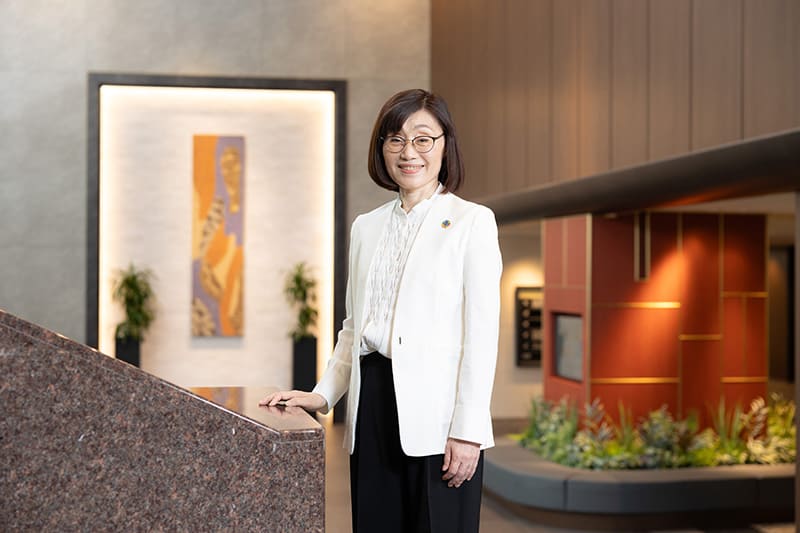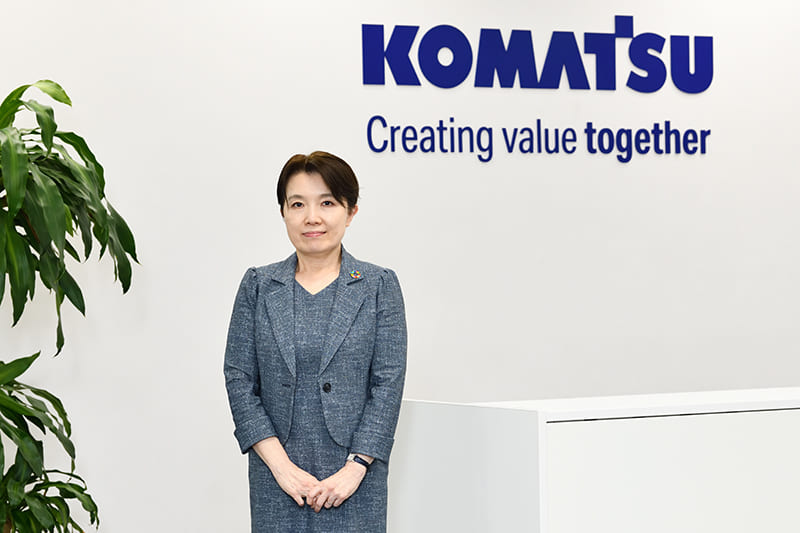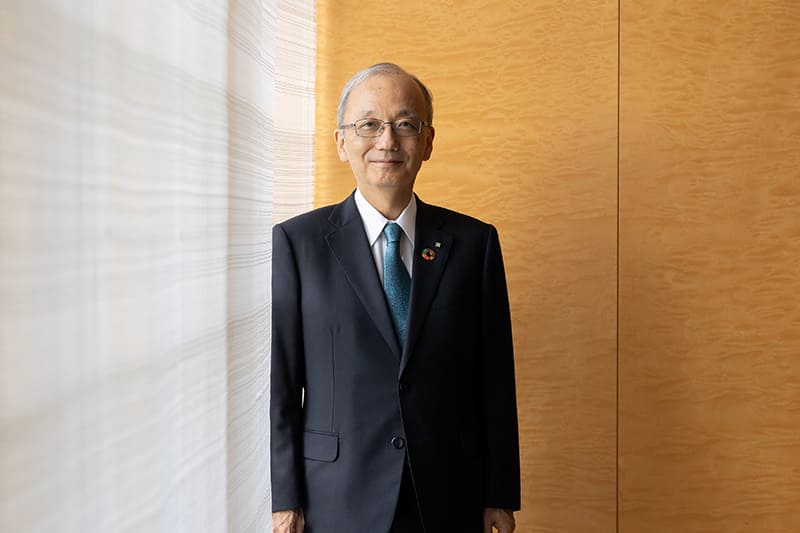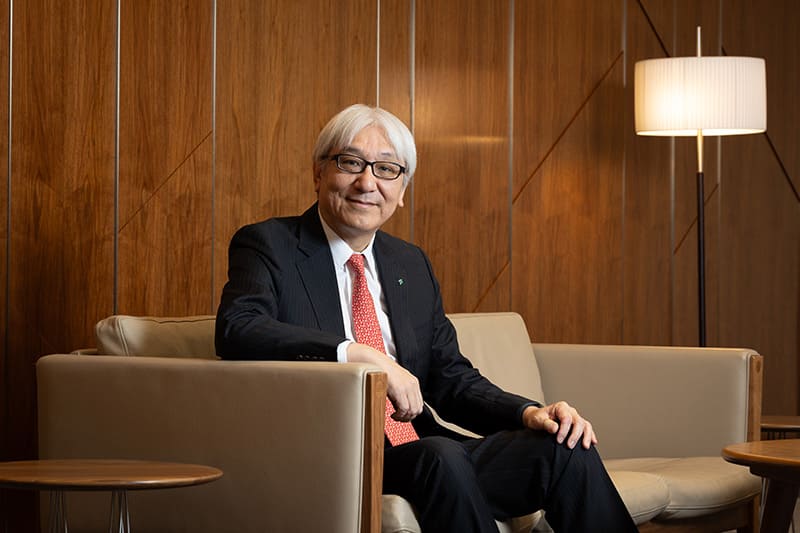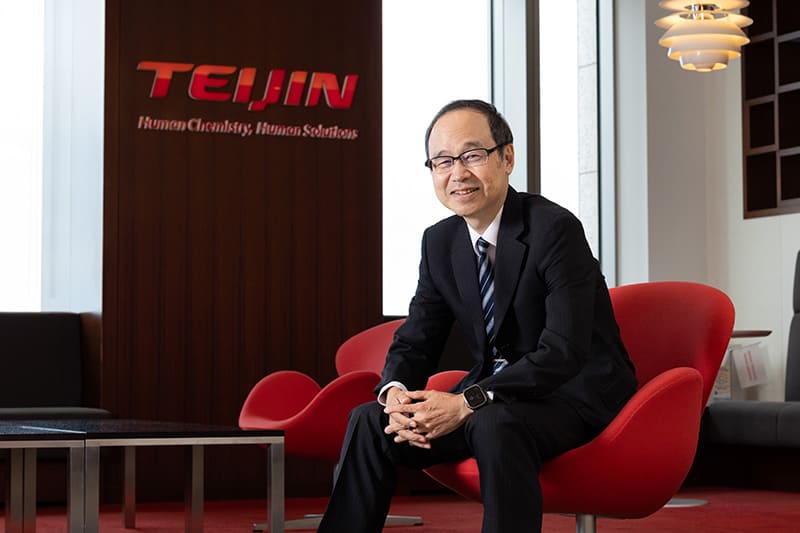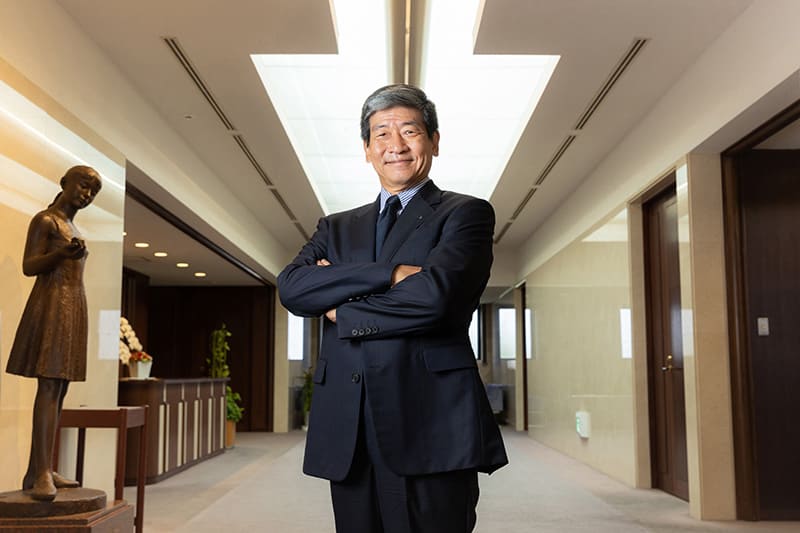January 20, 2023
Kikkoman’s secret sauce: A taste for trying new things
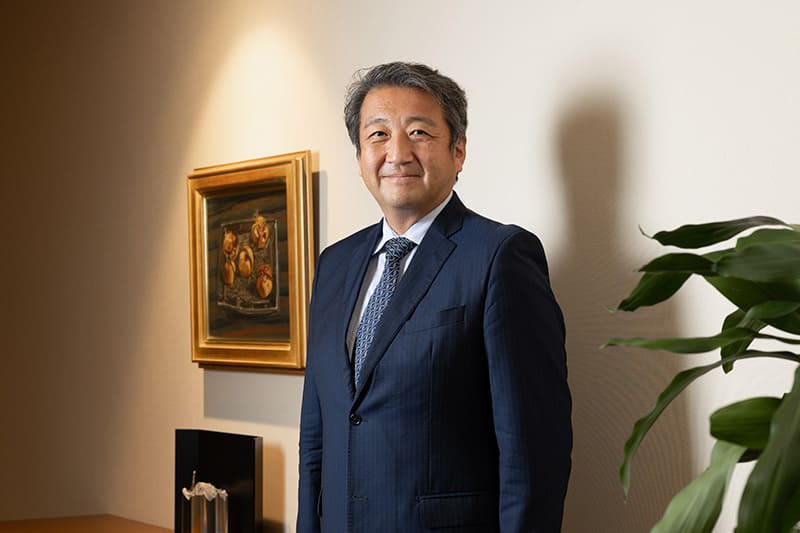
Long before Japanese cuisine took root, as it has now in the United States, soy sauce was a familiar item in U.S. supermarkets. That popularity was supported by Kikkoman Corp.’s long efforts, creating hundreds of recipes every year to tempt American palates.
“Still now, we are proposing at least 200 recipes every year not only for American consumers but also restaurant owners,” said Osamu Mogi, director and senior executive corporate officer in charge of international operations for Kikkoman.
On Instagram and other social media, Kikkoman promotes various recipes — from a soy sauce brine for roast Thanksgiving turkey to desserts like chocolate fudge brownies with a bit of soy sauce and snacks like butter-soy sauce popcorn.
Staying responsive to market demand has been key for the Japanese soy sauce maker to develop its business across roughly 350 years.
Kikkoman started exporting its products to the U.S. before World War II, mainly targeting Japanese Americans and Japanese people working in the country. The company resumed exports of soy sauce to overseas markets after the war because despite the postwar domestic economic recovery, the consumption of seasonings does not necessarily rise in tandem with economic upturns.
For further business growth, Kikkoman adopted a pair of new strategies. One was to diversify its business in response to Westernized food culture. The company widened its product lineup by acquiring marketing rights in most of Asia and Oceania for the processed fruit and vegetable maker Del Monte and launching a wine business with the Manns Wines brand. The other strategy was to globalize its business. Kikkoman had confidence in the perceived quality of its products through feedback from U.S. journalists, educators and others who had come to Japan after the war.
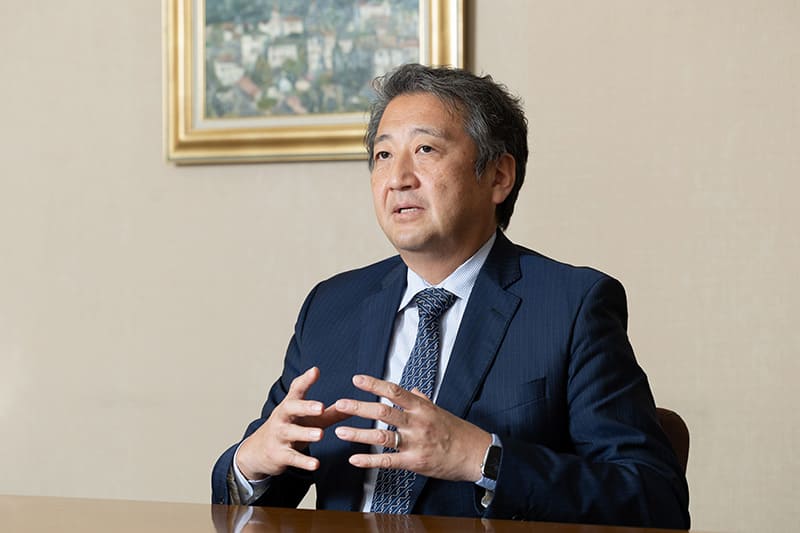
“That was why we embarked on the U.S. market. We took the approach to get people to use soy sauce for their daily meals, as selling it only for Japanese food would not expand the market,” Mogi said.
Taking this tack, the soy sauce maker opened its first overseas sales subsidiary in the U.S. in 1957. Its first overseas plant started shipments in 1973.
It began with demonstrations at supermarkets, always an effective way to increase food sales. In front of shoppers, Kikkoman representatives would grill and slice steak, dip it in soy sauce, let customers try a piece and urge them to buy the new kind of steak sauce. But getting customers to try one bottle of soy sauce was not enough, Mogi said. What was important was that they try to cook something with it for themselves, experience the good taste, use up the whole bottle and go buy another. To assist, we developed countless recipes.
“Such an approach takes time. But once the customers understood the delicious taste, it would lead to the buying of another bottle. And the customers would very likely become our loyal users,” Mogi continued. “How to link the first purchase to the second one is the most important point in Kikkoman’s marketing.”
Asked how the U.S. operations could endure its long profitless period until the establishment of the manufacturing plant, Mogi said one of the reasons was the venture spirit that they wanted people overseas who had not yet tasted soy sauce to give it a try. Another reason was that they were confident in their product and believed it would succeed.
Kikkoman’s story begins with makers of soy sauce — or shoyu, a fermented seasoning made with soybeans, wheat, salt and water — who started production in the 1600s in the area that is now the Chiba Prefecture city of Noda. In 1917, eight soy sauce makers, including the Mogi family, joined to form Noda Shoyu Co. at a time when the modernization of Japanese industries was underway. The company later became Kikkoman, from the words “kikko,” meaning turtle shells, and “man,” meaning 10,000. Turtles have long been said to live for 10,000 years and are thought of as a symbol of good luck.
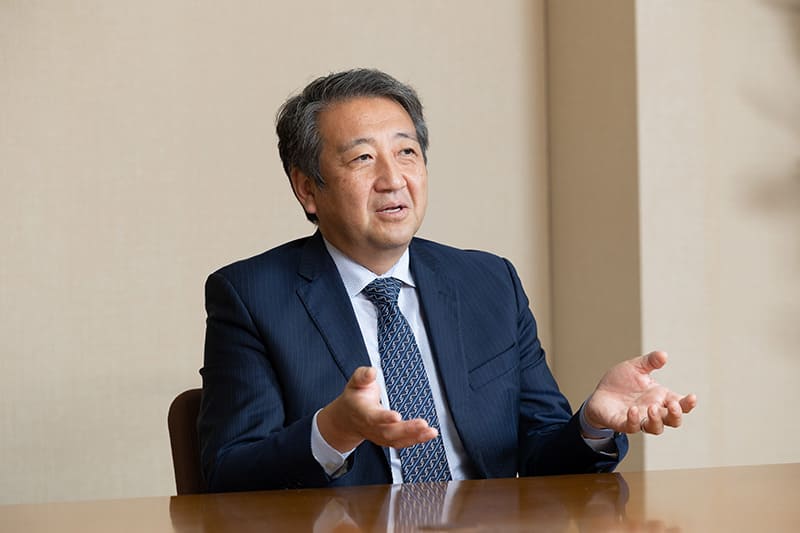
Mogi, the director for Kikkoman, said that already in 1925, the company was telling its workers to operate the business in the belief that society’s interest is also one’s own interest. Each founding family also has its own credo, such as that the goal for the company is not merely earning money but also doing something meaningful for society.
“Hundreds of years ago, they already insisted on what is required for a company in our era,” Mogi said. “The reason why we continued to stay in business for such a long time is that we have this philosophy as our backbone — a philosophy of living together with the community and society.” This way of thinking leads to Kikkoman’s current business philosophy of becoming a company meaningful for society and our planet, he added.
Fortunately, it is getting easier to enter markets in other countries amid demographic changes and emerging new generations, Mogi said. In Europe, where Kikkoman has generated two-digit growth or more on average every year for a quarter of a century, traditional food cultures have slowly changed. For example, French people once enjoyed eating cheese with a glass of wine after dinner, but younger generations barely follow the custom anymore. Because of the changes in European societies, Kikkoman creates recipes both for each market and for Europe overall.
In the future, Kikkoman aims to fortify its ventures into new markets such as South America, India and Africa, Mogi said. He also stressed the importance of keeping up with consumer mindsets, especially at a time when new generations such as Gen Z and millennials have a more powerful presence in our society.
“They gauge companies from a perspective of whether the companies work on social issues or not. I always feel that our corporate brand could deteriorate if we do not address issues proactively,” Mogi said. “In any case, we will do what impacts society, because that’s investment for the future.”
Naonori Kimura
Industrial Growth Platform Inc. (IGPI) Partner
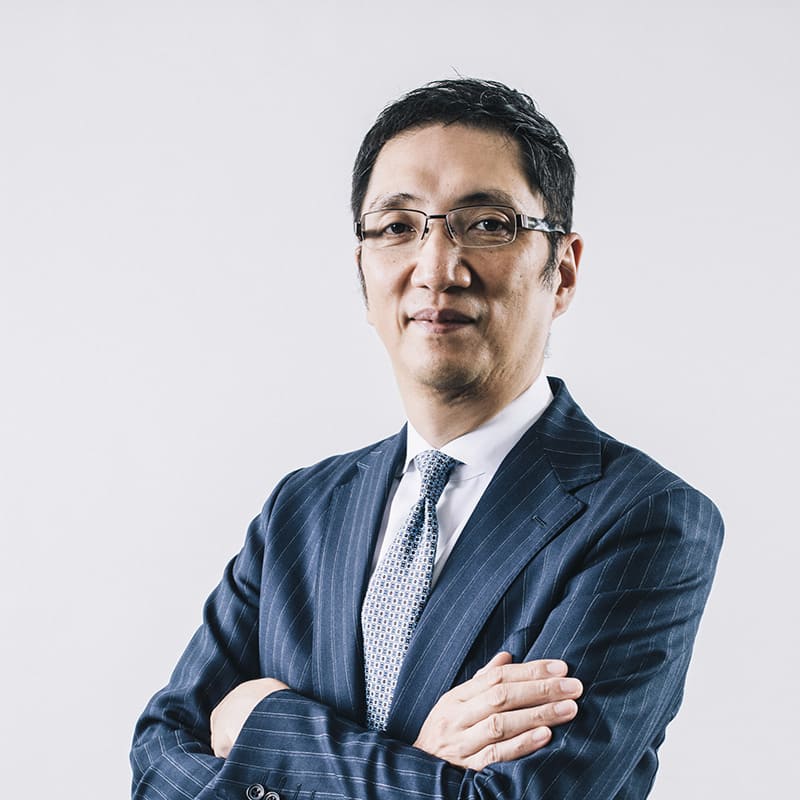
Kikkoman Corp. originated from brewers of soy sauce who started business 350 years ago. Later in 1917, eight brewer families in the city of Noda in Chiba Prefecture joined together and laid the ground for the current form of Kikkoman. What they aimed to do was to increase their value further by merging into a company that operates in harmony with society. This history shows its origins of sustainable management.
Before World War II, Kikkoman was already exporting soy sauce to Japanese living abroad. After the war, it expected a long-term downturn for the domestic soy sauce market and decided to enter overseas markets. In the United States, the largest market, it developed recipes that made the best use of the taste of soy sauce. The key to succeeding in the market was creating a “culture” of soy sauce by doing business with local customers for a long time.
It seems the U.S. operations struggled financially until the manufacturing plant was established. What encouraged it to continue the business without giving up was the leaders’ belief in the product and spirit of adventure, Senior Executive Corporate Officer Osamu Mogi said. This corporate culture is shared among the workers and permeates corporate activities.
Kikkoman is now looking to strengthen its presence in other markets such as South America and India within the next 10 years under the vision of “bringing soy sauce to people around the world.” These markets are not yet mature. What fuels its motivation to take on another new challenge remains a belief in the product and a spirit of adventure. Since its business deals with food, something very close to people’s daily lives, it aims to precisely respond to changes in consumer mindsets and grow sustainably as a company that solves social issues. I believe it will see another 350 years.

